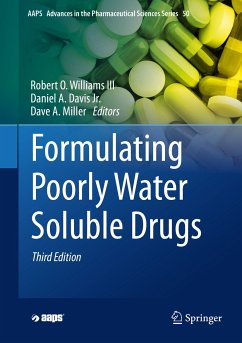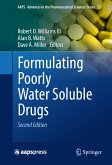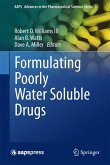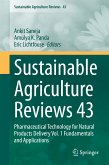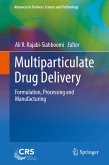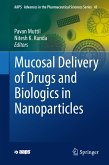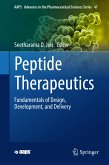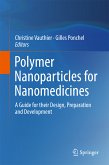The objective of this third edition is to consolidate within a single text the most current knowledge, practical methods, and regulatory considerations pertaining to formulations development with poorly water-soluble molecules. A pharmaceutical scientist's approach toward solubility enhancement of a poorly water-soluble molecule typically includes detailed characterization of the compound's physiochemical properties, solid-state modifications, advanced formulation design, non-conventional process technologies, advanced analytical characterization, and specialized product performance analysis techniques. The scientist must also be aware of the unique regulatory considerations pertaining to the non-conventional approaches often utilized for poorly water-soluble drugs. One faced with the challenge of developing a drug product from a poorly soluble compound must possess at a minimum a working knowledge of each of the above mentioned facets and detailed knowledge of most. In light of the magnitude of the growing solubility problem to drug development, this is a significant burden especially when considering that knowledge in most of these areas is relatively new and continues to develop.
Highlights the most recent advancements reported in the literature on technologies to improve the dissolution and bioavailability of poorly water soluble drugs
Provides a comprehensive discussion of new technologies developed and recently over 40% updated new content
Essential read for scientists and researchers in pharmaceutical, chemical, and agricultural industries since over 80% of newly discovered drugs are poorly water soluble.
Dieser Download kann aus rechtlichen Gründen nur mit Rechnungsadresse in A, B, BG, CY, CZ, D, DK, EW, E, FIN, F, GR, HR, H, IRL, I, LT, L, LR, M, NL, PL, P, R, S, SLO, SK ausgeliefert werden.

